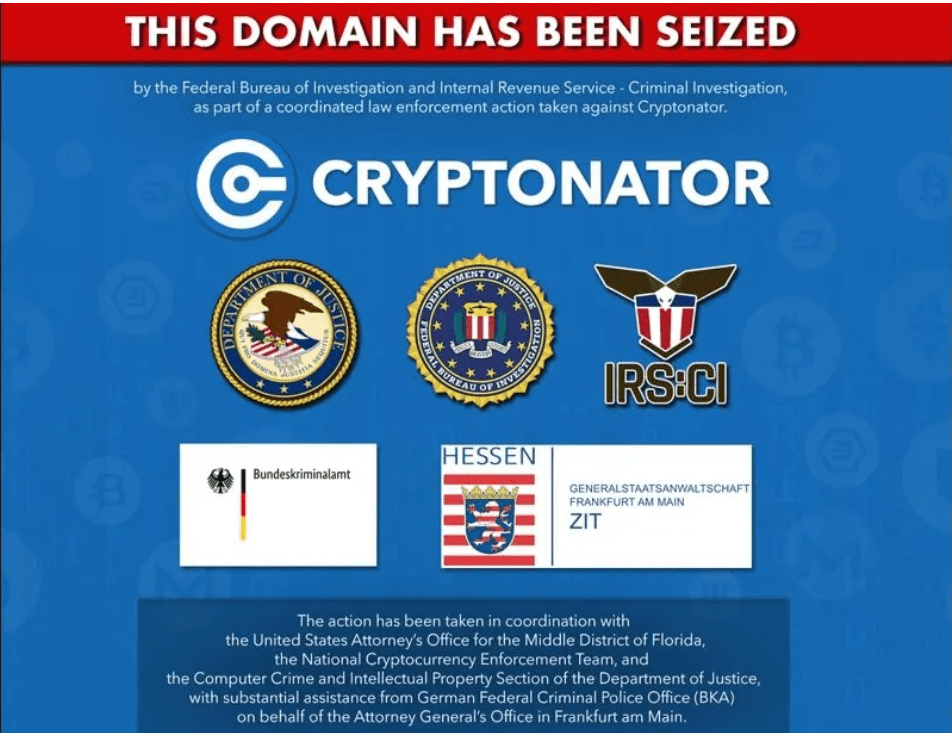The U.S. Justice Department (DOJ) has indicted Roman Pikulev, a/k/a Roman Boss, a Russian national, for his role in founding and operating Cryptonator, an unlicensed crypto exchange alleged to have processed over $235 million in illicit funds. According to the indictment, Pikulev and his associates ran Cryptonator from 2014 until March 2023 and operated as an international money laundering scheme, catering primarily to criminals.
Law Enforcement Actions
Cryptonator received proceeds from a variety of crimes, including computer intrusions, hacking incidents, ransomware scams, fraud markets, and identity theft schemes. The platform’s website has been taken down by the U.S. Justice Department, Internal Revenue Service, and German law enforcement agencies, including the German Federal Criminal Police Office.

Cryptonator was never registered with the U.S. Financial Crimes Enforcement Network (FinCEN) despite conducting business in the United States, which constitutes a federal felony. The Justice Department highlighted that Cryptonator lacked meaningful anti-money laundering (AML) processes and did not have an effective AML program.
Criminal Operations
Pikulev, who also used the surname “Boss” on some official documents, knowingly handled funds derived from crimes or intended to support criminal activities. The platform facilitated cryptocurrency exchanges for hackers and cybercriminals, allowing them to cash out cryptocurrencies into fiat currency. Cryptonator included functions that anonymized the sources of cryptocurrency, further enabling illicit activities.
Roman Pikulev operated Cryptonator using dozens of U.S.-based technology providers and advertised on U.S. social media sites to promote the scheme. The Justice Department obtained a search warrant for the email address Pikulev used to register cryptonator.com, revealing extensive criminal activity.
Financial Impact
Cryptonator facilitated more than 4 million transactions worth a total of $1.4 billion, with Pikulev taking a small cut from each transaction. Blockchain research tools revealed that Bitcoin addresses controlled by Cryptonator directly and indirectly sent or received significant sums from darknet marketplaces, fraud shops, scams, high-risk exchanges, ransomware campaigns, and hacked or stolen funds.
Addresses sanctioned by the Treasury Department conducted transactions worth more than $71 million through Cryptonator alongside millions from known cybercriminals. Blockchain researchers at TRM Labs identified numerous transactions and connections to other sanctioned entities and criminal marketplaces, including Blender, Hydra Market, Bitzlato, and Garantex.





